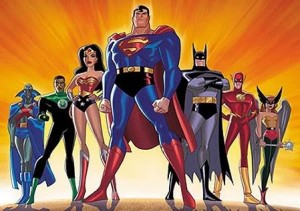Super Committee not acting like superheroes when it comes to solving debt crisis

Somebody call Superman. The Justice League of America is about to fall on its fanny. All right, I know Superman’s a member of the Justice League, but the point is that our superheroes are failing us – or at least the vaunted Congressional Super Committee appears to be on the verge of failing to meet its appointed duties. And it's on the verge of failing when the national debt has just passed the infamous $15 trillion mark.
According to The Washington Post, the Super Committee – officially the United States Joint Select Committee on Deficit Reduction -- has only days to come up with a budget agreement that will take trillions of dollars of red ink out of the nation’s budget outlook and prevent a series of crises precipitated by the need to approve higher debt ceilings every few months.
It seemed logical just under a year ago when another select committee – the bipartisan Simpson-Bowles National Commission on Fiscal Responsibility – recommended a combination of budget cuts and tax increases to meet this very need. Its plan was highly praised because it took on the sacred cows of entitlement programs such as Social Security, Medicare and defense spending. But neither the President nor Congressional leaders embraced the Commission’s report, and it died a quiet bureaucratic death.
So we returned to square one by appointing the Super Committee with a built-in recipe for failure. Republican members had taken a pledge not to raise any taxes. This is the Grover Norquist commitment – a promise made to an unelected lobbyist whom most Americans have still never heard of. Many of the Republican committee members had also committed themselves to protecting defense spending. Meanwhile, Democrats had largely foresworn major cuts to the entitlements associated with the nation’s major social agendas– principally the aforementioned Social Security and Medicare programs. So between the hidebound positions of the two parties, there was little room for agreement from the outset.
Prior to the creation of the Super Committee, President Obama and House Speaker John Boehner had struggled unsuccessfully to reach a “grand bargain” that would have potentially reduced the national debt by some $4 trillion dollars over a ten-year period, but those controls would have included some tax increases. Boehner held firm on the “no tax increases” position – even for Americans making a million dollars or more annually -- referring to those top earners as “job creators” and warning that taxing the wealthy would reduce their incentive to develop new opportunities for others.
Meanwhile, according to an LA Times report, a group of "patriotic" millionaires, led by Leo Hindery Jr., former chief executive of AT&T Broadband; Frank Jernigan, a former senior software engineer for Google Inc.; and Garrett Gruener, founder of Ask.com, lobbied the Super Committee this week to raise taxes on the super rich, saying, “Any super committee deal that does not include higher taxes for millionaires should be killed.”
Some millionaires have been falling all over themselves asking to be taxed more since Warren Buffett volunteered that he was under-taxed earlier this year and suggested that the tax code favored the wealthy over the middle class. Though, to be fair, no one in this group has voluntarily written a check to the federal government as of yet.
Perhaps Buffett and his tax-volunteering millionaire friends should appoint themselves as the new Justice League of America, don traditional superhero tights and swoop in to save the Congressional Super Committee before it self-destructs just in time for Thanksgiving. Because what this country needs right now is a dose of super heroism from its Super Committee instead of what we’re getting: politics as usual.




